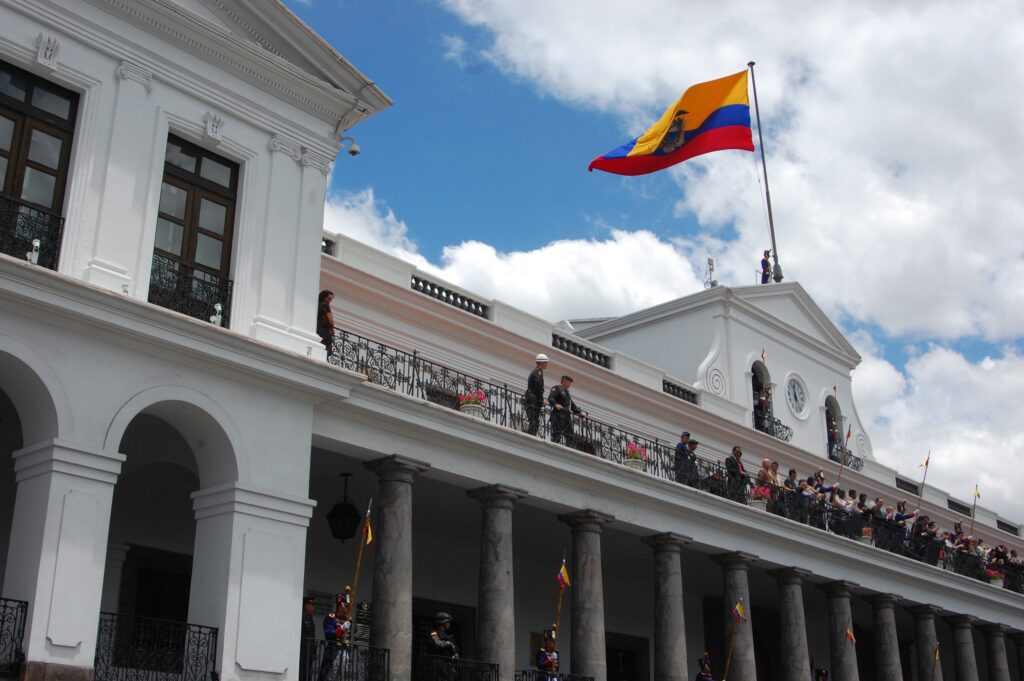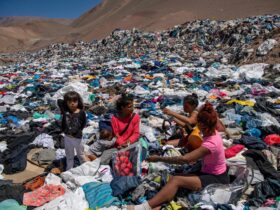The relationship between China and Ecuador, at a surface level, has been that between lender and borrower. During the administration of President Rafael Correa, who served from 2007 to 2017, the South American country cut ties with western investors and refused to pay the nation’s debt to the United States, all amid a global financial crisis. As a result, the Chinese government provided financial support to Ecuador, starting a complex alliance between the two countries.
Since Ecuador holds the third most important reserve of oil in South America, China also had much to gain from the establishment of this relationship. However this article seeks to look beyond the surface of this political relationship, focusing on understanding how the exchange of money and trade of oil has impacted Ecuador and, most notably, Ecuador’s environment.
China’s investment in the growth of Ecuador’s infrastructure has come at a critical cost. The national growth of Ecuador’s economy has led to severe environmental degradation within the South American country. According to The Ministry of the Environment Ecuador had 31.2 million acres of native forest in 2016; by 2018 it had lost 288,760 acres. Between 1990 and 2018, just over 4.9 million acres of forest were lost in Ecuador. Santiago Ron, an Ecuadorian biologist and professor at the Pontifical Catholic University of Ecuador, says that “for its size, Ecuador has the highest annual deforestation rate of any country in the Western Hemisphere, “
While Ecuador has received monetary support from China in the form of loans, these loans have left Ecuador $19 billion in debt. In addition to the debt, China’s aggressive quest for foreign oil has strained tensions with Ecuador. According to records by Reuters, China is pursuing a “near-monopoly control of crude exports from an OPEC nation, Ecuador.” Now Ecuador heavily relies on funding by the Chinese, to cover 61% of the government’s $6.2 billion in financing needs. This, however, isn’t a donation, but rather in return, China can claim up to 90% of Ecuador’s oil shipments in the coming years. However, over time Ecuador’s petroleum has become insufficient in paying the debt to China. In its efforts to pay back the debt, Ecuador has been pushed to exploit their land through mining and more invasive oil extraction.
To accommodate China’s payment demands, Ecuador has continuously been pushing their own limits. Indigenous populations, such as the Amazonian ethnic group Shur, have been forced to leave their lands so that mines and electrical transmission towers can be developed and then used to pay back China with resources. In San Marcos, 26 Shur families were evicted from their homes and the surrounding areas — a total of 116 people were forced to leave, including 52 children and teenagers. These families not only lost their homes, but their cultivation areas. Group migration because of land exploitation has caused drastic pollution and deforestation. Land that once was home to large amounts of biodiversity has now become a site for an open-pit mega-mine known as the Mirador project.
Some other ways in which Ecuador has sought to fulfill its payments has been by cutting national costs elsewhere. Ecuador decided to save money by building their own dam and generating low-cost electricity. However, this dam was built and financed by China, and can be found lying alongside the active volcano Reventador. According to Ecuador’s Minister of Energy Carlos Perez, the dam was, “supposed to christen Ecuador’s vast ambitions, solve its energy needs and help lift the small South American country out of poverty.” Carlos Perez recognizes that “China took advantage of Ecuador,” and that “the strategy of China is clear. They take economic control of countries.” In addition to the many scandals that have accompanied this project, the dam only runs at half capacity and is an impending liability to the environment and to the Ecuadorian government. Construction of the dam was rushed, with insufficient trials and incomplete research conducted that led to its ultimate inefficiency. The dam’s existence has deteriorated the local environment by drying up the nearby Coca River and eliminating an entire aquatic ecosystem.
While these have proven to be detrimental aspects of the current state of Ecuador-China relations, the reality is that Ecuador continues to remain reliant on China as a commercial and political partner.
Therefore Chinese encroachment on Ecuador’s maritime borders have not been legitimately respected. Because Ecuador is heavily dependent on China, they do not have the basis to implement harsh punishments on Chinese violations. Ecuador switched from a dependency on the United States and multilateral organizations, to another dependency on China. The concern is that Ecuador didn’t learn anything from its previous experiences, and is still dependent on the old commodities export model.
In July 2019, the Ecuadorian Navy was put on “high alert” by the Defense Minister, as they spotted significantly large Chinese fleets approaching Galapagos Island and threatening maritime boundaries. In 2017, Chinese vessels ”were captured in the Galapagos Marine Reserve carrying 300 tons of marine wildlife.” Among them, Fu Yuan Yu Leng 999 was caught with illegally obtained sharks among them endangered whale sharks and hammerhead sharks. While China proposed a ban on fishing, they had no incentive to follow through with this proposal. China also strategically placed the prohibition period in the fall months, knowing that their fleets are only present in the summertime. While the Galapagos Island falls under Ecuadorian jurisdiction, Ecuador’s dependence on China has forced them to be docile when handling China’s encroachment.
It is essential that not only Ecuador but that the world ensures the preservation of Galapagos Island which holds nearly 3,000 marine species among them “humpback whales and sea turtles to giant manta rays and hammerhead sharks.” This is a problem that continues to rise in relevance. U.S. Secretary of State Mike Pompeo commented on the matter, saying that, “the People’s Republic of China subsidizes the world’s largest commercial fishing fleet, which routinely violates the sovereign rights and jurisdiction of coastal states, fishes without permission, and overfishes licensing agreements.”
The time has come for Ecuador to make amends with the West and seek allies outside of China. Once this has been done, Ecuador can regain independence and address their disputes and disagreements with China on equal footing, all in an effort to preserve its fragile ecosystem.
Change must be enacted. Ecuadorian Kichwa indigenous elders call this moment pachakutik, or “time of change.” Reevaluating China-Ecuador relations is an important first step in ending this vicious cycle of poor sustainable development.







